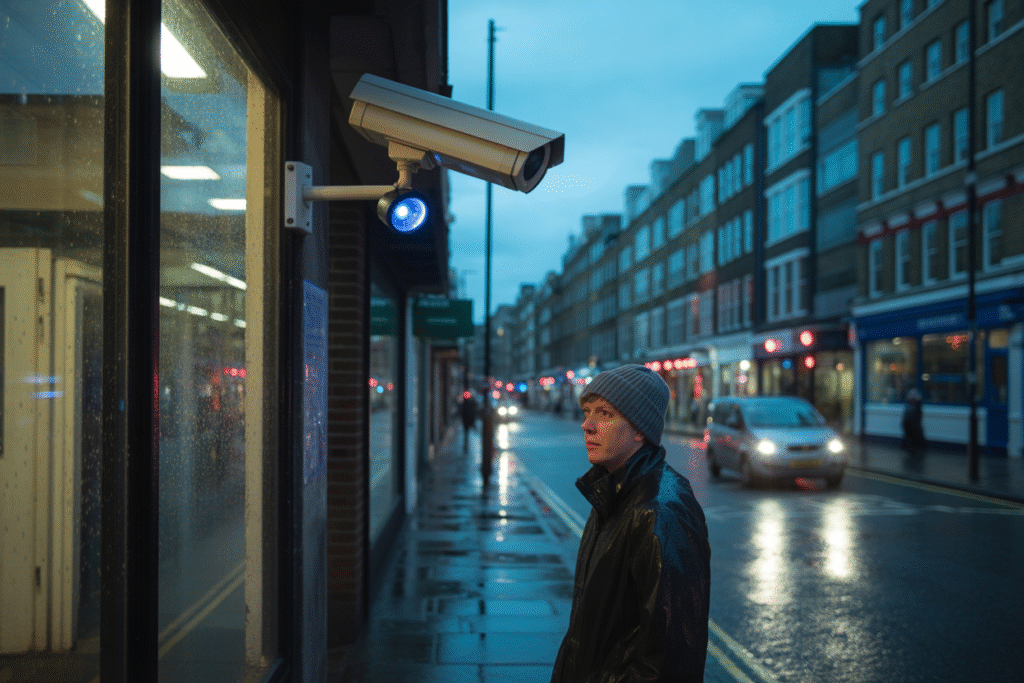From wrongful facial recognition arrests to AI coaches giving life advice, here’s what just happened—and why it matters.
Scroll for three minutes and the AI landscape already shifts. In the last three hours alone, new controversies erupted over AI replacing humans in policing, coaching, and even life-or-death medical decisions. These aren’t tomorrow’s hypotheticals—they’re happening right now. Let’s unpack the drama, the data, and what it means for you.
When the Wrong Face Lands You in Handcuffs
Londoners woke up to a boast that sounds more like a confession: the Met Police celebrated “only” eight facial recognition false positives this year. Eight innocent people, flagged as suspects by an algorithm.
Privacy watchdog Big Brother Watch clipped the video, and the internet exploded—116 likes, 62 reposts, and climbing. Critics call it surveillance creep. Supporters claim it’s better than last year’s numbers. Both miss the point: every false positive is a real human pulled aside, searched, maybe even arrested.
The stakes? Marginalized communities already face disproportionate stops. Add biased training data and the error rate skyrockets for darker skin tones. One wrongful arrest can cost someone a job, a visa, or their sense of safety.
What if the next misidentified face is yours? That question is driving fresh calls for an outright ban on live facial recognition in public spaces.
Your New Life Coach Might Be a Chatbot—With Baggage
Forbes dropped a warning this morning: swapping human coaches for generative AI carries at least 17 hidden risks. The post, shared by career strategist @expert_yourlife, has already racked up 103 likes and thousands of views.
Imagine spilling your deepest career fears to a bot that learned from Reddit threads and corporate handbooks. No confidentiality clause, no empathy, no ethical duty of care—just pattern matching at scale.
The upside is tempting. AI coaches cost pennies per session and never sleep. Startups promise to democratize personal development for millions who can’t afford a human mentor. Yet the downsides read like a dystopian checklist:
– Algorithmic bias steering women away from STEM roles
– Data leaks exposing intimate session logs
– Generic advice that reinforces stereotypes
Coaches aren’t just question-askers; they read micro-expressions, adapt on the fly, and carry professional liability. Strip that away and you get efficiency without accountability. The debate boils down to one tension: accessibility versus authenticity. Which would you trust with your next career pivot?
Smarter AI, Lazier Doctors—The Healthcare Paradox
A PhD researcher in AI safety posted a chilling paradox this morning: the smarter medical AI becomes, the more human vigilance slips. The thread hit 68 likes and over 5,000 views in minutes.
Picture a radiologist who once double-checked every scan. Now an AI flags possible tumors with 95% accuracy. Over time, the doctor trusts the machine, skims the image, and misses the 5% the AI got wrong. Multiply that across hospitals worldwide and the silent error rate climbs.
Bias sneaks in too. Training data skewed toward lighter-skinned patients means darker-skinned patients receive less accurate diagnoses. When doctors stop questioning the algorithm, those gaps widen.
Regulators scramble for transparency mandates—black-box models need explainability scores. Tech firms push back, citing trade secrets. Meanwhile, patients sit in waiting rooms wondering if their diagnosis came from a human expert, a flawless machine, or a dangerous hybrid of both.
The question isn’t whether AI should assist in healthcare; it’s how to keep human oversight sharp when the machine looks infallible.
Why These Three Stories Went Viral in Hours
Each scandal hit a nerve because they’re personal. Facial recognition could stop you on the street. An AI coach could derail your career. A misdiagnosis could end a life.
Short, visual posts helped. Big Brother Watch used a 15-second clip of the police chief’s own words. Forbes paired its article with a neon graphic screaming “17 Risks.” The PhD researcher turned a dense paper into a five-tweet thread with plain-English examples.
Timing mattered too. All three dropped during the UK morning coffee scroll and the US late-night doom-scroll window. Engagement algorithms did the rest, pushing each post into overlapping communities: privacy activists, career coaches, and medical residents.
Add the evergreen keywords—AI replacing humans, ethics, risks—and the content becomes search-engine gold for months. One well-timed share from a micro-influencer can snowball into mainstream coverage by dinner.
What You Can Do Before the Next Headline Drops
Feeling overwhelmed? Start small. Audit the apps on your phone—does that meditation coach store your sessions in the cloud? Ask your doctor if AI reads your scans and how often humans review them.
Support organizations pushing for regulation. Big Brother Watch offers a one-click email tool to lobby local MPs. Share credible threads instead of rage-bait; nuance travels slower but lands harder.
Finally, keep your own critical thinking switched on. Every time you interact with an AI—whether it’s a chatbot therapist or a diagnostic tool—ask the silent question: who’s accountable when this goes wrong?
Your attention is the new currency. Spend it where humans still matter.


